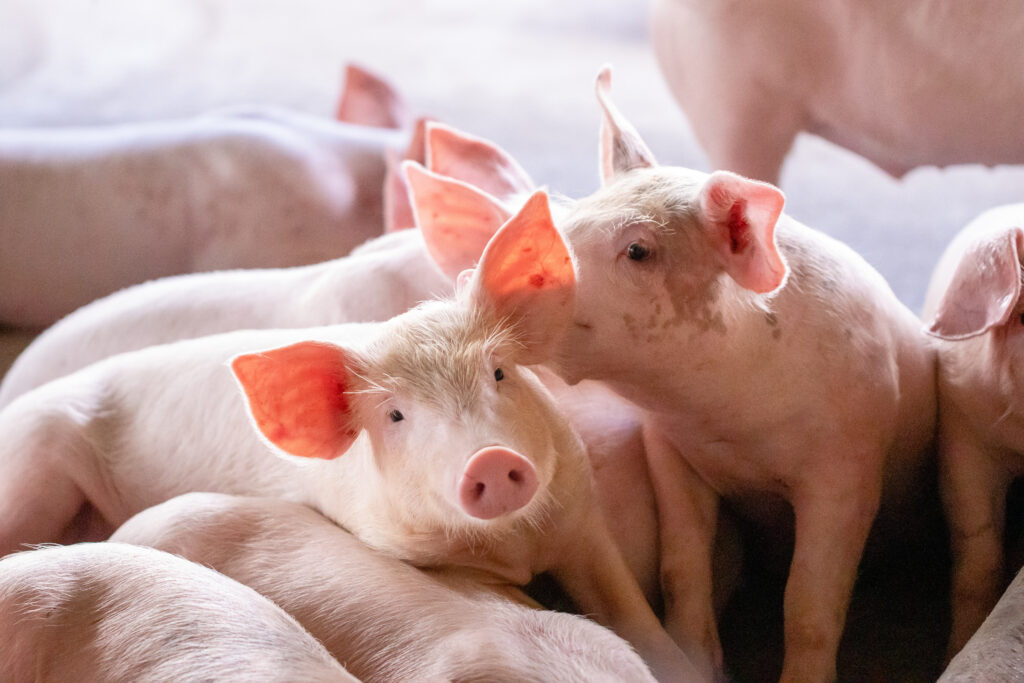The UK pig market remains historically stable, despite the recent price falls, according to AHDB analysis.
The latest fall in the EU-spec SPP, which dropped by 0.91p to 209.50p/kg during the week ended July 6, meant the price index has lost nearly 2p since the start of June. It is currently at its lowest level since February 2023 and 14.6p/kg below a year ago, when the SPP was approaching its peak.
In June, the EU-spec SPP averaged 210.26p/kg, just under a penny down on May. While the recent trend is downwards, AHDB analysis shows that the monthly SPP has fallen by just 1.65p over the first six months of the year, a relatively small movement indicating market stability, AHDB analyst Freya Shuttleworth said.
In fact, since the SPP was introduced in 2014, this is the only year the monthly average has changed by less than 2p between January and June, although 2024 is the first year since 2015 to record a downward movement. The last three years have all seen significant upward movement in price during this period (20p in 2023, 47p in 2022 and 13p in 2021).
The same trend is generally repeated for the APP, except in 2024 where the direction of change differs to the SPP.
“Despite both price series sitting below year ago levels (-13p SPP, -10p APP), pig prices remain historically high,” Ms Shuttleworth added.
“Although the estimated cost of production continues to be historically elevated, net margins are in a positive position and industry sentiment is said to have improved. However, most will still agree that 2024 is a year of reset and recovery, both mentally and financially.”
EU prices
After recent price falls across Europe, the European reference price (grade E) fell by 3p during the week ended July 7 to stand at 184.26p/kg, expanding the gap to the equivalent UK reference price to 25p.
EU average prices fell 1.19p/kg in June, weighted on a large decline in the week ending 16 June which coincided with the news of new ASF outbreaks in Germany. Small increases were recorded in the following weeks but were not enough to outweigh this decline.
Pig supplies
Provisional estimates indicate that slaughter throughputs have picked up marginally in June, compared to May, most likely due to the impact of the two May bank holidays, according to Ms Shuttleworth.
“The availability of pigs is still reported as running tight, however kill numbers have begun to show some small year on year gains, again likely due to comparing to a lower kill period, with hot weather impacting the market in 2023,” she said.
Pig meat production is being supported by higher carcase weights. Average weights for the SPP sample in June stood at 90.6kg, a marginal decline from May but an uplift of over 2kg compared to last year.
“There have been some comments that growth rates have slowed on some farms following the removal of zinc oxide from pig diets,” Ms Shuttleworth added.
AHDB has not published a GB slaughterings estimate for the first week of July yet, after some major upward revisions were made in June for April, May and June 2024, ‘following the discovery of an error in the April and May 2024 Defra data’.
Domestic Demand
“Summer is often a highlight season for pork, but consumer purchases continue to paint a mixed picture in 2024,” Ms Shuttleworth added.
The latest Kantar data shows overall retail pork volumes nearly 3% down in the 12 weeks to June 9, although spend was virtually unchanged on the back of higher prices.
However, some categories and products are seeing volume growth. Primary pork has been performing well, while roasting joints made the largest volume gain of all products for the period, with promotional activity increasing shopper numbers. Pork belly has also seen good growth year on year.
However, processed pork has seen overall volumes fall, driven by a substantial drop off in gammon, sliced cooked meats and bacon, while sausages and Burger/grills have both recorded strong volume growth, probably supported by BBQ demand and sporting events, including the Euros.
“Our recent analysis showed that pork is more likely to be used in social meal occasions over the summer than any other time of year,” Ms Shuttleworth added.




